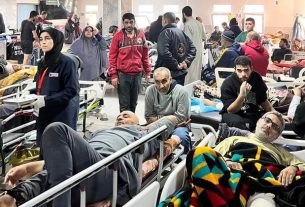The war has thrown us all into a state of uncertainty and stress. For divorced couples, this period presents additional challenges. To address the numerous inquiries and concerns regarding this topic, we will provide some useful advice.
What happens with the scheduled custody times in times of emergency?
In general, divorce agreements and court rulings do not account for times of war. Therefore, as long as there are no official directives mandating to stay in protected areas, custody times can be upheld. However, if one parent resides in a more dangerous location, it is advisable to consider leaving the child in a safer settlement even when it means deviating from the regular schedule, particularly when educational institutions are closed. This is a time for cooperation, prioritizing the child’s safety and security. If an agreement cannot be reached, the family court can be contacted for assistance.
Who picks up and returns the child?
Continue following the same procedure as before the war.
Can the return or transfer of the child to the other parent’s home be conditioned on a Military Mandatory Deployment (MMD)?
No. It is not appropriate to impose conditions or demands to prevent custody arrangements. However, it is important to demonstrate responsibility and insist that the child stays with you if there is no access to a medical center or a safer place to stay. The child’s welfare and safety should be the utmost priority.
What about alimony payments?
Alimony should continue to be paid as usual, even if the father is called up for reserve duty. Just as in the past, it is not fair for either party to unilaterally halt alimony payments. Nevertheless, it is a time to exhibit sensitivity and patience if the father is called up, understanding that his safe return is paramount.
Do I deserve higher child support if the father is in the reserves and the child is with me?
Now is not the time to calculate and demand higher child support, even if the child is in your care for the entire duration of the father’s reserve duty. We are currently facing an extraordinary situation, and it is not appropriate to focus on financial calculations.
What if the child refuses to move between parents’ homes?
Given the circumstances of war, if the child is fearful of transitioning between homes, allow them to choose and remain where they feel most comfortable during this challenging period. However, it is encouraged to invite the other parent to visit the child in their chosen residence. We must avoid conflicts and disagreements during these times.
Undoubtedly, the war will raise additional questions that we will learn to navigate as we go along. Flexibility and patience are crucial in order to survive these days and provide as much stability and security as possible for our children.


